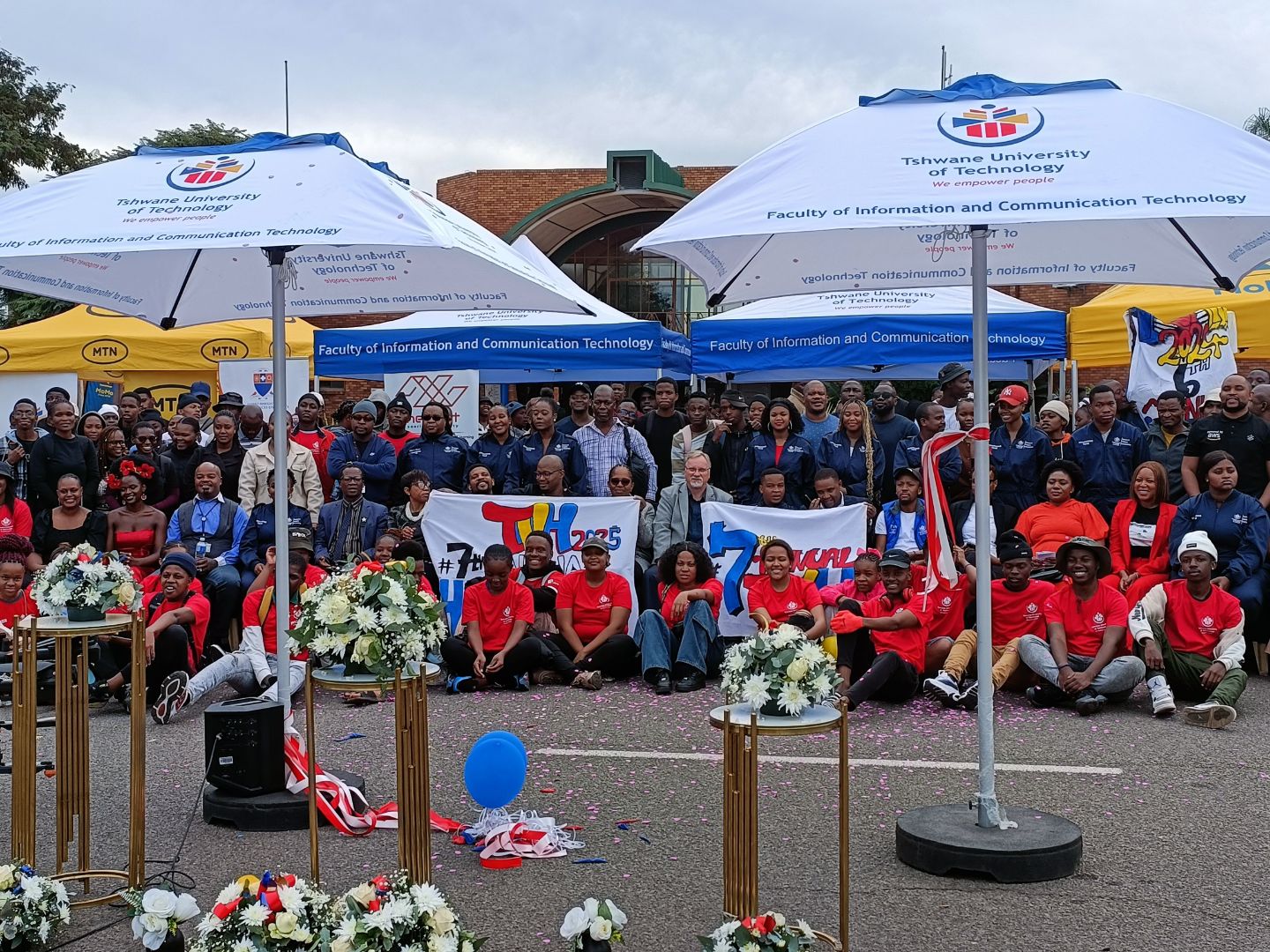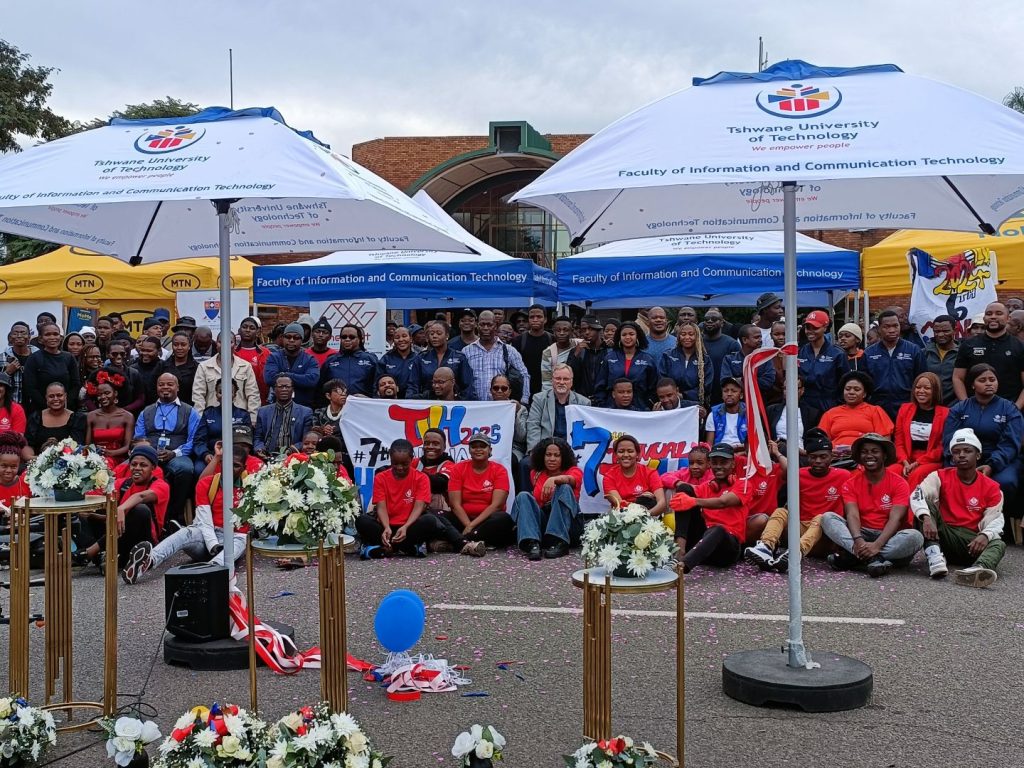

Shaping Future Tech Leaders: 7th Tshwane Varsity Hackathon Officially Launches
The Tshwane University of Technology’s (TUT) Faculty of Information and Communication Technology (FoICT), in partnership with the City of Tshwane, has officially launched the seventh annual Tshwane Varsity Hackathon (TVH). The launch took place on Thursday, 15 May 2025, at TUT’s Soshanguve Campus. This year, the event embraces a multidisciplinary approach, with collaboration from the Faculty of Engineering and the Built Environment (FEBE).
The Hackathon itself will run from 22 to 23 September 2025 at the Ga-Rankuwa Campus Multi-Purpose Hall, bringing together some of the most innovative and creative young minds from across Tshwane for an intense 48-hour coding and problem-solving challenge. Participating teams will represent TUT, the University of Pretoria, the University of South Africa (UNISA) and Sefako Makgatho Health Sciences University, ensuring a diverse mix of talent to tackle real-world problems.

Driving Innovation Aligned with National Goals
In his opening remarks, Mashitishi Phurutsi, Chairperson of the University Hackathon Series (UHS), stressed that the Hackathon is more than just a competition. It is a direct response to South Africa’s National Development Plan Vision 2030, specifically Chapter 9: Education, Training and Innovation.
“FoICT is committed to developing graduates who are future-ready, innovative and able to make meaningful contributions to society through research and technology transfer. TVH is where powerful student ideas meet the tools, mentorship and support needed to bring them to life. This is where learning meets doing, and creativity finds its purpose,” Phurutsi said.
The event is made possible through the support of NELEKAT, MTN, and the University Capacity Development Grant (UCDG). These partnerships not only fund the event but also give students the opportunity to engage with leading tech industry players.
Building Smart Solutions for Society
According to Dr Thato Shuping, Director of the City of Tshwane’s Innovation Unit, the Hackathon goes beyond coding:
“This Hackathon is about creating smart, practical solutions to real-life problems. We are excited to work with talented young people who are building the future.”
The broader goal of the TVH is to bridge the gap between academic knowledge and industry needs. By collaborating with businesses and tech leaders, students gain exposure to practical, African-driven digital solutions that can eventually be incubated and scaled.
Dr Etienne van Wyk, Executive Dean of FoICT, echoed this sentiment:
“TUT is dedicated to producing the next generation of problem-solvers and innovators. The Hackathon gives students from different universities the platform to share expertise, exchange ideas and develop creative, real-world solutions in a high-energy, collaborative environment.”
Preparing Teams for Success
Dr Rita Raseleka, TUT’s Director of Research, Innovation and Engagement, announced that the 2025 TVH will introduce Most Viable Product (MVP) development activities ahead of the main event. Teams will participate in webinars and masterclasses, gaining essential skills to build high-quality, competitive solutions.
“This initiative will elevate the standard of submissions, making the competition more impactful and meaningful,” she explained.
Success Stories that Inspire
Sharing her journey, Bathabile Mkhabela, a Multimedia Computing Cum Laude graduate and first-place winner at the sixth annual TVH, credited the Hackathon for her growth.
“TVH taught me how to conceptualise and complete a project within a tight deadline. It gave me exposure to the tech industry, improved my teamwork, time management and communication skills, and helped me identify both my strengths and areas for development.”
Looking Ahead
With its growing reputation, the Tshwane Varsity Hackathon continues to be a catalyst for nurturing South Africa’s next generation of innovators, connecting students, academia and industry in building technology-driven solutions for real societal impact.

 frequently Asked Questions
frequently Asked Questions
1 Comment
Hi, this is a comment.
To get started with moderating, editing, and deleting comments, please visit the Comments screen in the dashboard.
Commenter avatars come from Gravatar.